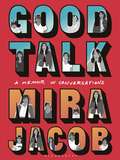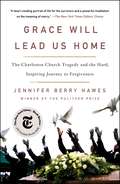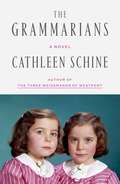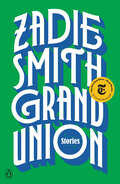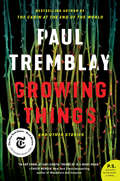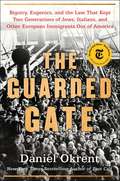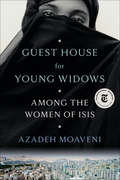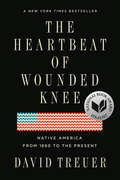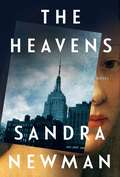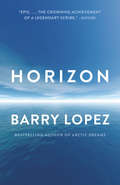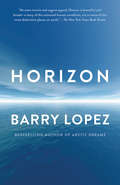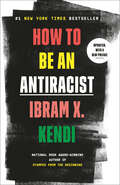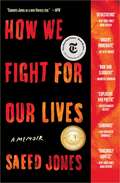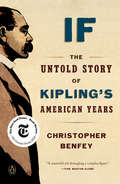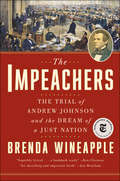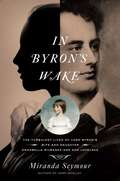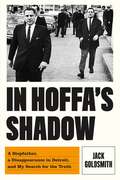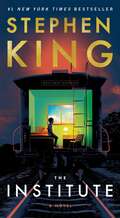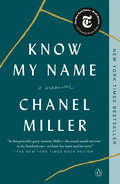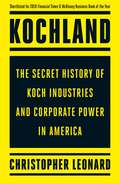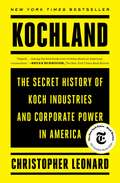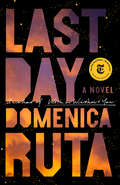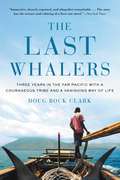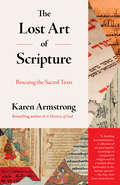Special Collections
100 Notable Books of 2019
- Table View
- List View
Good Talk
by Mira Jacob'By turns hilarious and heart-rending. Plunges fearlessly into the murky grey areas of race and family, of struggling to find common ground, of trying to talk to our children and help them make sense of it all' Celeste Ng'Does Donald Trump hate Muslims?''Is that how people really walk on the moon?''Is it bad to be brown?''Are white people afraid of brown people?'Inspired by her viral BuzzFeed piece '37 Difficult Questions from My Mixed-Raced Son', Mira Jacob responds to: her six-year-old, Zakir, who asks if the new president hates brown boys like him; uncomfortable relationship advice from her parents, who came to the United States from India one month into their arranged marriage; and increasingly fraught exchanges with her Trump-supporting in-laws. Jacob also investigates her own past, including how it felt to be a brown-skinned New Yorker on 9/11. As earnest and moving as they are laugh-out-loud funny, these are the stories that have shaped one life, but will resonate with many others.
Grace Will Lead Us Home
by Jennifer Berry HawesA deeply moving work of narrative nonfiction on the tragic shootings at the Mother Emanuel AME church in Charleston, South Carolina from Pulitzer Prize-winning journalist Jennifer Berry Hawes.
On June 17, 2015, twelve members of the historically black Emanuel AME Church in Charleston, South Carolina welcomed a young white man to their evening Bible study. He arrived with a pistol, 88 bullets, and hopes of starting a race war. Dylann Roof’s massacre of nine innocents during their closing prayer horrified the nation. Two days later, some relatives of the dead stood at Roof’s hearing and said, “I forgive you.” That grace offered the country a hopeful ending to an awful story. But for the survivors and victims’ families, the journey had just begun.
In Grace Will Lead Us Home, Pulitzer Prize-winning journalist Jennifer Berry Hawes provides a definitive account of the tragedy’s aftermath. With unprecedented access to the grieving families and other key figures, Hawes offers a nuanced and moving portrait of the events and emotions that emerged in the massacre’s wake.The two adult survivors of the shooting begin to make sense of their lives again. Rifts form between some of the victims’ families and the church. A group of relatives fights to end gun violence, capturing the attention of President Obama. And a city in the Deep South must confront its racist past. This is the story of how, beyond the headlines, a community of people begins to heal.An unforgettable and deeply human portrait of grief, faith, and forgiveness, Grace Will Lead Us Home is destined to be a classic in the finest tradition of journalism.
The Grammarians
by Cathleen SchineAn enchanting, comic love letter to sibling rivalry and the English language.
From the author compared to Nora Ephron and Nancy Mitford, not to mention Jane Austen, comes a new novel celebrating the beauty, mischief, and occasional treachery of language.
The Grammarians are Laurel and Daphne Wolfe, identical, inseparable redheaded twins who share an obsession with words. They speak a secret twin tongue of their own as toddlers; as adults making their way in 1980s Manhattan, their verbal infatuation continues, but this love, which has always bound them together, begins instead to push them apart. Daphne, copy editor and grammar columnist, devotes herself to preserving the dignity and elegance of Standard English. Laurel, who gives up teaching kindergarten to write poetry, is drawn, instead, to the polymorphous, chameleon nature of the written and spoken word. Their fraying twinship finally shreds completely when the sisters go to war, absurdly but passionately, over custody of their most prized family heirloom: Merriam Webster s New International Dictionary, Second Edition.
Cathleen Schine has written a playful and joyful celebration of the interplay of language and life. A dazzling comedy of sisterly and linguistic manners, a revelation of the delights and stresses of intimacy, The Grammarians is the work of one of our great comic novelists at her very best.
Grand Union
by Zadie SmithThe first ever collection of stories from the bestselling and beloved author of Swing Time and White TeethIn the summer of 1959, an Antiguan immigrant in north west London lives the last day of his life, unknowingly caught in someone else's story of hate and division, resistance and revolt.A mother looks back on her early forays into matters of the human heart--and other parts of the human body--considering the ways in which desire is always an act of negotiation, destruction, and self-invention.A disgraced cop stands amid the broken shards of his life, unable to move forward into a future that holds no place for him.Moral panic spreads like contagion through the upper echelons of New York City--and the cancelled people look disconcertingly like the rest of us.A teenage scion of the technocratic elite chases spectres through a premium virtual reality, trailed by a little girl with a runny nose and no surviving family.We all take a much-needed break from this mess, on a package holiday where the pool's electric blue is ceaselessly replenished, while political and environmental collapse happen far away, to someone else.Interleaving ten completely new and unpublished stories with some of her best-loved pieces from the New Yorker and elsewhere, Zadie Smith presents a dizzyingly rich and varied collection of fiction. Moving exhilaratingly across genres and perspectives, from the historic to the vividly current to the slyly dystopian, Grand Union is a sharply alert and prescient collection about time and place, identity and rebirth, the persistent legacies that haunt our present selves and the uncanny futures that rush up to meet us.
Growing Things and Other Stories
by Paul TremblayA chilling collection of psychological suspense and literary horror from the multiple award-winning author of the national bestseller The Cabin at the End of the World and A Head Full of Ghosts.A masterful anthology featuring nineteen pieces of short fiction, Growing Things is an exciting glimpse into Paul Tremblay’s fantastically fertile imagination.In “The Teacher,” a Bram Stoker Award nominee for best short story, a student is forced to watch a disturbing video that will haunt and torment her and her classmates’ lives. Four men rob a pawn shop at gunpoint only to vanish, one-by-one, as they speed away from the crime scene in “The Getaway.”In “Swim Wants to Know If It’s as Bad as Swim Thinks,” a meth addict kidnaps her daughter from her estranged mother as their town is terrorized by a giant monster . . . or not.Joining these haunting works are stories linked to Tremblay’s previous novels. The tour de force metafictional novella “Notes from the Dog Walkers” deconstructs horror and publishing, possibly bringing in a character from A Head Full of Ghosts, all while serving as a prequel to Disappearance at Devil’s Rock. “The Thirteenth Temple” follows another character from A Head Full of Ghosts—Merry, who has published a tell-all memoir written years after the events of the novel. And the title story, “Growing Things,” a shivery tale loosely shared between the sisters in A Head Full of Ghosts, is told here in full.From global catastrophe to the demons inside our heads, Tremblay illuminates our primal fears and darkest dreams in startlingly original fiction that leaves us unmoored. As he lowers the sky and yanks the ground from beneath our feet, we are compelled to contemplate the darkness inside our own hearts and minds.
The Guarded Gate
by Daniel OkrentBy the widely celebrated New York Times bestselling author of Last Call—the powerful, definitive, and timely account of how the rise of eugenics helped America close the immigration door to “inferiors” in the 1920s.A forgotten, dark chapter of American history with implications for the current day, The Guarded Gate tells the story of the scientists who argued that certain nationalities were inherently inferior, providing the intellectual justification for the harshest immigration law in American history. Brandished by the upper class Bostonians and New Yorkers—many of them progressives—who led the anti-immigration movement, the eugenic arguments helped keep hundreds of thousands of Jews, Italians, and other unwanted groups out of the US for more than 40 years. Over five years in the writing, The Guarded Gate tells the complete story from its beginning in 1895, when Henry Cabot Lodge and other Boston Brahmins launched their anti-immigrant campaign. In 1921, Vice President Calvin Coolidge declared that “biological laws” had proven the inferiority of southern and eastern Europeans; the restrictive law was enacted three years later. In his characteristic style, both lively and authoritative, Okrent brings to life the rich cast of characters from this time, including Lodge’s closest friend, Theodore Roosevelt; Charles Darwin’s first cousin, Francis Galton, the idiosyncratic polymath who gave life to eugenics; the fabulously wealthy and profoundly bigoted Madison Grant, founder of the Bronx Zoo, and his best friend, H. Fairfield Osborn, director of the American Museum of Natural History; Margaret Sanger, who saw eugenics as a sensible adjunct to her birth control campaign; and Maxwell Perkins, the celebrated editor of Hemingway and Fitzgerald. A work of history relevant for today, The Guarded Gate is an important, insightful tale that painstakingly connects the American eugenicists to the rise of Nazism, and shows how their beliefs found fertile soil in the minds of citizens and leaders both here and abroad.
Guest House for Young Widows
by Azadeh MoaveniA gripping account of thirteen women who joined, endured, and, in some cases, escaped life in the Islamic State—based on years of immersive reporting by a Pulitzer Prize finalist. Among the many books trying to understand the terrifying rise of ISIS, none has given voice to the women in the organization; but women were essential to the establishment of Abu Bakr al-Baghdadi’s caliphate. Responding to promises of female empowerment and social justice, and calls to aid the plight of fellow Muslims in Syria, thousands of women emigrated from the United States and Europe, Russia and Central Asia, from across North Africa and the rest of the Middle East to join the Islamic State. These were the educated daughters of diplomats, trainee doctors, teenagers with straight-A averages, as well as working-class drifters and desolate housewives, and they set up makeshift clinics and schools for the Islamic homeland they envisioned. Guest House for Young Widows charts the different ways women were recruited, inspired, or compelled to join the militants. Emma from Hamburg, Sharmeena and three high school friends from London, Nour, a religious dropout from Tunis: all found rebellion or community in political Islam and fell prey to sophisticated propaganda that promised them a cosmopolitan adventure and a chance to forge an ideal Islamic community where they could live devoutly without fear of stigma or repression. It wasn’t long before the militants exposed themselves as little more than violent criminals, more obsessed with power than the tenets of Islam, and the women of ISIS were stripped of any agency, perpetually widowed and remarried, and ultimately trapped in a brutal, lawless society. The fall of the caliphate only brought new challenges to women no state wanted to reclaim. Moaveni’s exquisite sensitivity and rigorous reporting makes these forgotten women indelible and illuminates the turbulent politics that set them on their paths.Advance praise for Guest House for Young Widows“In this searing investigation, Moaveni explores the phenomenon of Muslim women—many of them educated, successful, and outwardly Westernized—choosing to travel to Syria in support of jihad. . . . In concise, visceral vignettes, Moaveni immerses her readers in a milieu saturated with the romantic appeal of violence. The result is a journalistic tour de force that lays bare the inner lives, motivations, and aspirations of her subjects.”—Publishers Weekly (starred review)
The Heartbeat of Wounded Knee
by David TreuerA sweeping history--and counter-narrative--of Native American life from the Wounded Knee massacre to the present.
The received idea of Native American history--as promulgated by books like Dee Brown's mega-bestselling 1970 Bury My Heart at Wounded Knee--has been that American Indian history essentially ended with the 1890 massacre at Wounded Knee.
Not only did one hundred fifty Sioux die at the hands of the U. S. Cavalry, the sense was, but Native civilization did as well. Growing up Ojibwe on a reservation in Minnesota, training as an anthropologist, and researching Native life past and present for his nonfiction and novels, David Treuer has uncovered a different narrative.
Because they did not disappear--and not despite but rather because of their intense struggles to preserve their language, their traditions, their families, and their very existence--the story of American Indians since the end of the nineteenth century to the present is one of unprecedented resourcefulness and reinvention.
In The Heartbeat of Wounded Knee, Treuer melds history with reportage and memoir. Tracing the tribes' distinctive cultures from first contact, he explores how the depredations of each era spawned new modes of survival.
The devastating seizures of land gave rise to increasingly sophisticated legal and political maneuvering that put the lie to the myth that Indians don't know or care about property. The forced assimilation of their children at government-run boarding schools incubated a unifying Native identity.
Conscription in the US military and the pull of urban life brought Indians into the mainstream and modern times, even as it steered the emerging shape of self-rule and spawned a new generation of resistance. The Heartbeat of Wounded Knee is the essential, intimate story of a resilient people in a transformative era.
A New York Times Bestseller
The Heavens
by Sandra NewmanNew York, late summer, 2000. A party in a spacious Manhattan apartment, hosted by a wealthy young activist. Dozens of idealistic twenty-somethings have impassioned conversations over takeout dumplings and champagne. The evening shines with the heady optimism of a progressive new millennium. A young man, Ben, meets a young woman, Kate--and they begin to fall in love. Kate lives with her head in the clouds, so at first Ben isn't that concerned when she tells him about the recurring dream she's had since childhood. In the dream, she's transported to the past, where she lives a second life as Emilia, the mistress of a nobleman in Elizabethan England. But for Kate, the dream becomes increasingly real, to the point where it threatens to overwhelm her life. And soon she's waking from it to find the world changed--pictures on her wall she doesn't recognize, new buildings in the neighborhood that have sprung up overnight. As Kate tries to make sense of what's happening, Ben worries the woman he's fallen in love with is losing her grip on reality. Both intoxicating and thought-provoking,The Heavens is a powerful reminder of the consequences of our actions, a poignant testament to how the people we love are destined to change, and a masterful exploration of the power of dreams.
Horizon
by Barry LopezFrom the National Book Award-winning author of the now-classic Arctic Dreams, a vivid, poetic, capacious work that recollects the travels around the world and the encounters--human, animal, and natural--that have shaped an extraordinary life.Taking us nearly from pole to pole--from modern megacities to some of the most remote regions on the earth--and across decades of lived experience, Barry Lopez, hailed by the Los Angeles Times Book Review as "one of our finest writers," gives us his most far-ranging yet personal work to date, in a book that moves indelibly, immersively, through his travels to six regions of the world: from Western Oregon to the High Arctic; from the Galápagos to the Kenyan desert; from Botany Bay in Australia to finally, unforgettably, the ice shelves of Antarctica. As he takes us on these myriad travels, Lopez also probes the long history of humanity's quests and explorations, including the prehistoric peoples who trekked across Skraeling Island in northern Canada, the colonialists who plundered Central Africa, an enlightenment-era Englishman who sailed the Pacific, a Native American emissary who found his way into isolationist Japan, and today's ecotourists in the tropics. Throughout his journeys--to some of the hottest, coldest, and most desolate places on the globe--and via friendships he forges along the way with scientists, archaeologists, artists and local residents, Lopez searches for meaning and purpose in a broken world. Horizon is a revelatory, epic work that voices concern and frustration along with humanity and hope--a book that makes you see the world differently, and that is the crowning achievement by one of America's great thinkers and most humane voices.
Horizon
by Barry LopezFrom the National Book Award-winning writer, humanitarian, environmentalist and author of the now-classic Arctic Dreams: a vivid, poetic, capacious work that recollects the travels around the world and the encounters--human, animal, and natural--that have shaped his extraordinary life. Poignantly, powerfully, it also asks "How do we move forward?"Taking us nearly from pole to pole--from modern megacities to some of the most remote regions on the earth--Barry Lopez, hailed by the Los Angeles Times Book Review as "one of our finest writers," gives us his most far-ranging yet personal work to date, in a book that moves through decades of his life as it describes his travels to six regions of the world: from the Oregon coast where he lives to the northernmost reaches of Canada; to the Galapagos; to the Kenyan desert; to Botany Bay in Australia; and in the resounding last section of this magisterial book, unforgettably to the ice shelves of Antarctica. As he revisits his growing up and these myriad travels, Lopez also probes the long history of humanity's quests and explorations, including the prehistoric peoples who trekked across Skraeling Island in northern Canada; the colonialists who plundered Central Africa; an Enlightenment-era Englishman who sailed the Pacific and a Native American emissary who arrived in Japan before it opened to the West. He confronts today's ecotourism in the tropics and visits the haunting remnants of a French colonial prison on Île du Diable in French Guiana. Through these journeys, and friendships forged along the way with scientists, archeologists, artists and local residents, Lopez searches for meaning and purpose in a broken world. With tenderness and intimacy, Horizon evokes the stillness and the silence of the hottest, the coldest and the most desolate places on the globe. It speaks with beauty and urgency to the invisible ties that unite us; voices concern and frustration alongside humanity and hope; and looks forward to our shared future as much as it looks back at a single life. Revelatory, powerful, profound, this is an epic work of nonfiction that makes you see the world differently: a crowning achievement by one of our most humane voices--one needed now more than ever.
How to Be an Antiracist
by Ibram KendiFrom the National Book Award–winning author of Stamped from the Beginning comes a “groundbreaking” (Time) approach to understanding and uprooting racism and inequality in our society—and in ourselves. “The only way to undo racism is to consistently identify and describe it—and then dismantle it.”
Antiracism is a transformative concept that reorients and reenergizes the conversation about racism—and, even more fundamentally, points us toward liberating new ways of thinking about ourselves and each other.
At it's core, racism is a powerful system that creates false hierarchies of human value; its warped logic extends beyond race, from the way we regard people of different ethnicities or skin colors to the way we treat people of different sexes, gender identities, and body types.
Racism intersects with class and culture and geography and even changes the way we see and value ourselves. In How to Be an Antiracist, Kendi takes readers through a widening circle of antiracist ideas—from the most basic concepts to visionary possibilites—that will help readers see all forms of racism clearly, understand their posionous consequences, and work to oppose them in our systems and in ourselves.
Kendi weaves an electrifying combination of ethics, history, law, and science with his own personal story of awakening to antiracism. This is an essential work for anyone who wants to go beyond the awareness of racism to the next step: contributing to the formation of a just and equitable society.
A New York Times Bestseller
How We Fight for Our Lives
by Saeed Jones“People don’t just happen,” writes Saeed Jones. “We sacrifice former versions of ourselves. We sacrifice the people who dared to raise us. The ‘I’ it seems doesn’t exist until we are able to say, ‘I am no longer yours.’”
Haunted and haunting, How We Fight for Our Lives is a stunning coming-of-age memoir. Jones tells the story of a young, black, gay man from the South as he fights to carve out a place for himself, within his family, within his country, within his own hopes, desires, and fears.
Through a series of vignettes that chart a course across the American landscape, Jones draws readers into his boyhood and adolescence—into tumultuous relationships with his family, into passing flings with lovers, friends, and strangers.
Each piece builds into a larger examination of race and queerness, power and vulnerability, love and grief: a portrait of what we all do for one another—and to one another—as we fight to become ourselves.
An award-winning poet, Jones has developed a style that’s as beautiful as it is powerful—a voice that’s by turns a river, a blues, and a nightscape set ablaze. How We Fight for Our Lives is a one-of-a-kind memoir and a book that cements Saeed Jones as an essential writer for our time.
If
by Christopher BenfeyA unique exploration of the life and work of Rudyard Kipling in Gilded Age America, from a celebrated scholar of American literature At the turn of the twentieth century, Rudyard Kipling towered over not just English literature, but the entire literary world. At the height of his fame in 1907, he was awarded the Nobel Prize for Literature, becoming its youngest winner. His influence on figures—including the likes of Freud and William James—was vast and profound. But in recent decades Kipling’s reputation has suffered a strange eclipse. Though his body of work still looms large, and his monumental poem “If—” is quoted and referenced by politicians, athletes, and professors, he himself is treated with profound unease as a man on the wrong side of history. In If, scholar Christopher Benfey brings this fascinating writer to life and, for the first time, gives full attention to his intense engagement with the United States—a rarely discussed but critical piece of evidence in our understanding of this man and his enduring legacy. Benfey traces the writer’s deep involvement with America over one crucial decade, from 1889 to 1899, when he lived for four years in Brattleboro, Vermont, and sought deliberately to turn himself into a specifically American writer. It was his most prodigious and creative period, as well as his happiest, during which he wrote The Jungle Book and Captains Courageous. Had a family dispute not forced his departure, Kipling almost certainly would have stayed. Leaving was the hardest thing he ever had to do, Kipling said. “There are only two places in the world where I want to live,” he lamented, “Bombay and Brattleboro. And I can’t live in either.” In this fresh examination of Kipling, Benfey hangs a provocative “what if” over Kipling’s American years and maps the imprint Kipling left on his adopted country as well as the imprint the country left on him. If proves there is relevance and magnificence to be found in Kipling’s work.
The Impeachers
by Brenda Wineapple“This absorbing and important book recounts the titanic struggle over the implications of the Civil War amid the impeachment of a defiant and temperamentally erratic American president.”—Jon Meacham, Pulitzer Prize–winning author of The Soul of America When Abraham Lincoln was assassinated and Vice-President Andrew Johnson became “the Accidental President,” it was a dangerous time in America. Congress was divided over how the Union should be reunited: when and how the secessionist South should regain full status, whether former Confederates should be punished, and when and whether black men should be given the vote. Devastated by war and resorting to violence, many white Southerners hoped to restore a pre–Civil War society, if without slavery, and the pugnacious Andrew Johnson seemed to share their goals. With the unchecked power of executive orders, Johnson ignored Congress, pardoned rebel leaders, promoted white supremacy, opposed civil rights, and called Reconstruction unnecessary. It fell to Congress to stop the American president who acted like a king. With profound insights and making use of extensive research, Brenda Wineapple dramatically evokes this pivotal period in American history, when the country was rocked by the first-ever impeachment of a sitting American president. And she brings to vivid life the extraordinary characters who brought that impeachment forward: the willful Johnson and his retinue of advocates—including complicated men like Secretary of State William Seward—as well as the equally complicated visionaries committed to justice and equality for all, like Thaddeus Stevens, Charles Sumner, Frederick Douglass, and Ulysses S. Grant. Theirs was a last-ditch, patriotic, and Constitutional effort to render the goals of the Civil War into reality and to make the Union free, fair, and whole.Advance praise for The Impeachers “In this superbly lyrical work, Brenda Wineapple has plugged a glaring hole in our historical memory through her vivid and sweeping portrayal of President Andrew Johnson’s 1868 impeachment. She serves up not simply food for thought but a veritable feast of observations on that most trying decision for a democracy: whether to oust a sitting president. Teeming with fiery passions and unforgettable characters, The Impeachers will be devoured by contemporary readers seeking enlightenment on this issue. . . . A landmark study.”—Ron Chernow, Pulitzer Prize–winning author of Grant
In Byron's Wake
by Miranda SeymourA masterful portrait of two remarkable women, revealing how two turbulent lives were always haunted by the dangerously enchanting, quicksilver spirit of that extraordinary father whom Ada never knew: Lord Byron. In 1815, the clever, courted, and cherished Annabella Milbanke married the notorious and brilliant Lord Byron. Just one year later, she fled, taking with her their baby daughter, the future Ada Lovelace. Byron himself escaped into exile and died as a revolutionary hero in 1824, aged 36. The one thing he had asked his wife to do was to make sure that their daughter never became a poet. Ada didn’t. Brought up by a mother who became one of the most progressive reformers of Victorian England, Byron’s little girl was introduced to mathematics as a means of calming her wild spirits. Educated by some of the most learned minds in England, she combined that scholarly discipline with a rebellious heart and a visionary imagination. As a child invalid, Ada dreamed of building a steam-driven flying horse. As an exuberant and boldly unconventional young woman, she amplified her explanations of Charles Babbage’s unbuilt calculating engine to predict—as nobody would do for another century—the dawn of the modern computer age. When Ada died—like her father, she was only 36—great things seemed still to lie ahead for her as a passionate astronomer. Even while mired in debt from gambling and crippled by cancer, she was frenetically employing Faraday’s experiments with light refraction to explore the analysis of distant stars. Drawing on fascinating new material, Seymour reveals the ways in which Byron, long after his death, continued to shape the lives and reputations both of his wife and his daughter. During her life, Lady Byron was praised as a paragon of virtue; within ten years of her death, she was vilified as a disgrace to her sex. Well over a hundred years later, Annabella Milbanke is still perceived as a prudish wife and cruelly controlling mother. But her hidden devotion to Byron and her tender ambitions for his mercurial, brilliant daughter reveal a deeply complex but unexpectedly sympathetic personality. Miranda Seymour has written a masterful portrait of two remarkable women, revealing how two turbulent lives were often governed and always haunted by the dangerously enchanting, quicksilver spirit of that extraordinary father whom Ada never knew.
In Hoffa's Shadow
by Jack GoldsmithAs a young man, Jack Goldsmith revered his stepfather, longtime Jimmy Hoffa associate Chuckie O’Brien. But as he grew older and pursued a career in law and government, he came to doubt and distance himself from the man long suspected by the FBI of perpetrating Hoffa’s disappearance on behalf of the mob. It was only years later, when Goldsmith was serving as assistant attorney general in the George W. Bush administration and questioning its misuse of surveillance and other powers, that he began to reconsider his stepfather, and to understand Hoffa’s true legacy.
In Hoffa’s Shadow tells the moving story of how Goldsmith reunited with the stepfather he’d disowned and then set out to unravel one of the twentieth century’s most persistent mysteries and Chuckie’s role in it. Along the way, Goldsmith explores Hoffa’s rise and fall and why the golden age of blue-collar America came to an end, while also casting new light on the century-old surveillance state, the architects of Hoffa’s disappearance, and the heartrending complexities of love and loyalty.
The Institute
by Stephen KingFrom #1 New York Times bestselling author Stephen King, the most riveting and unforgettable story of kids confronting evil since It—publishing just as the second part of It, the movie, lands in theaters.
In the middle of the night, in a house on a quiet street in suburban Minneapolis, intruders silently murder Luke Ellis’s parents and load him into a black SUV. The operation takes less than two minutes.
Luke will wake up at The Institute, in a room that looks just like his own, except there’s no window. And outside his door are other doors, behind which are other kids with special talents—telekinesis and telepathy—who got to this place the same way Luke did: Kalisha, Nick, George, Iris, and ten-year-old Avery Dixon. They are all in Front Half.
Others, Luke learns, graduated to Back Half, “like the roach motel,” Kalisha says. “You check in, but you don’t check out.” In this most sinister of institutions, the director, Mrs. Sigsby, and her staff are ruthlessly dedicated to extracting from these children the force of their extranormal gifts. There are no scruples here.
If you go along, you get tokens for the vending machines. If you don’t, punishment is brutal. As each new victim disappears to Back Half, Luke becomes more and more desperate to get out and get help. But no one has ever escaped from the Institute.
As psychically terrifying as Firestarter, and with the spectacular kid power of It, The Institute is Stephen King’s gut-wrenchingly dramatic story of good vs. evil in a world where the good guys don’t always win.
A New York Times Bestseller
Know My Name
by Chanel MillerThe riveting, powerful memoir of the woman whose statement to Brock Turner gave voice to millions of survivors
She was known to the world as Emily Doe when she stunned millions with a letter. Brock Turner had been sentenced to just six months in county jail after he was found sexually assaulting her on Stanford's campus.
Her victim impact statement was posted on BuzzFeed, where it instantly went viral--viewed by eleven million people within four days, it was translated globally and read on the floor of Congress; it inspired changes in California law and the recall of the judge in the case. Thousands wrote to say that she had given them the courage to share their own experiences of assault for the first time.
Now she reclaims her identity to tell her story of trauma, transcendence, and the power of words. It was the perfect case, in many ways--there were eyewitnesses, Turner ran away, physical evidence was immediately secured. But her struggles with isolation and shame during the aftermath and the trial reveal the oppression victims face in even the best-case scenarios.
Her story illuminates a culture biased to protect perpetrators, indicts a criminal justice system designed to fail the most vulnerable, and, ultimately, shines with the courage required to move through suffering and live a full and beautiful life.
Know My Name will forever transform the way we think about sexual assault, challenging our beliefs about what is acceptable and speaking truth to the tumultuous reality of healing. It also introduces readers to an extraordinary writer, one whose words have already changed our world. Entwining pain, resilience, and humor, this memoir will stand as a modern classic.
A New York Times Bestseller
Kochland
by Christopher Leonard‘A landmark book....A massively reported deep dive into the unparalleled corporate industrial giant Koch Industries....This impressively researched and well-rendered book also serves as a biography of Charles Koch, with Leonard providing an evenhanded treatment of the tycoon. Leonard's work is on par with Steve Coll's Private Empire and even Ida Tarbell's enduring classic The History of the Standard Oil Company.’ Kirkus Reviews ‘Leonard’s superb investigations and even-handed, clear-eyed reportage stand out....American capitalism at its most successful and domineering is at the center of this sweeping history of a much-vilified company.’ Publishers Weekly ‘Leonard’s intricately developed and extensively researched history of the Koch empire is a colossal corporate biography that sheds important light on this closely guarded enterprise while simultaneously scrutinizing the nefarious underpinnings of American economic policies and practices.’ Booklist ‘This page-turning exposé reveals the full extent of the Koch brothers’ influence on American capitalism.’ Book Riot ‘If you want a crash course in the evolution of postmodern capitalism over the last five decades read Kochland....Leonard's study is exhaustive and engaging.’ New York Journal of Books The annual revenue of Koch Industries is bigger than that of Google, Goldman Sachs and Kraft Foods combined. But very few people have ever heard of Koch Industries because the billionaire Koch brothers want it that way. Now, in Kochland, Christopher Leonard has managed what no other journalist has done before: to tell the explosive inside story of how the largest private company in the world became that big. In doing so, Leonard also tells the epic tale of the evolution of corporate America over the last half-century, in all its glory and rapaciousness. Koch is everywhere. It controls the fertilisers at the foundation of our food system. It controls the synthetics that make our diapers and carpets. It controls the chemicals that make our bottles and pipes. It controls the building materials that make our homes and offices. And it controls much of the Wall Street trading in all of these commodities. It makes money at every end of almost every deal. For five decades, CEO Charles Koch has kept Koch Industries quietly operating behind a veil of secrecy, with a view toward very, very long-term profits. When Wall Street came calling twenty years ago, trying to take Koch public, Charles Koch said no. He’s a genius businessman: patient with profits, able to learn from his mistakes, determined that his employees develop an almost a worshipful dedication to free-market ruthlessness, and a master disrupter. We think of disruption as something that happens in Silicon Valley, but this book will upend your understanding of what disruption really is. Charles Koch’s business acumen has made him and his brother David (Koch Industries’ co-owner) together richer than Bill Gates. But there’s a dark side to their story. If you want to understand how we killed the unions in this country, how we widened the income divide, how we stalled progress on climate change and how corporate America bought the influence industry, all you have to do is read this book. Seven years in the making, Kochland reads like a true-life thriller, with larger-than-life characters driving the battles on every page. The book tells the ambitious tale of how one private company consolidated power over half a century – and how in doing so, transformed capitalism into something that feels so deeply alienating to many Americans today.
Kochland
by Christopher LeonardJust as Steve Coll told the story of globalization through ExxonMobil and Andrew Ross Sorkin told the story of Wall Street excess through Too Big to Fail, Christopher Leonard’s Kochland uses the extraordinary account of how one of the biggest private companies in the world grew to be that big to tell the story of modern corporate America.
The annual revenue of Koch Industries is bigger than that of Goldman Sachs, Facebook, and U.S. Steel combined. Koch is everywhere: from the fertilizers that make our food to the chemicals that make our pipes to the synthetics that make our carpets and diapers to the Wall Street trading in all these commodities.
But few people know much about Koch Industries and that’s because the billionaire Koch brothers want it that way. For five decades, CEO Charles Koch has kept Koch Industries quietly operating in deepest secrecy, with a view toward very, very long-term profits. He’s a genius businessman: patient with earnings, able to learn from his mistakes, determined that his employees develop a reverence for free-market ruthlessness, and a master disrupter. These strategies have made him and his brother David together richer than Bill Gates.
But there’s another side to this story. If you want to understand how we killed the unions in this country, how we widened the income divide, stalled progress on climate change, and how our corporations bought the influence industry, all you have to do is read this book.
Seven years in the making, Kochland reads like a true-life thriller, with larger-than-life characters driving the battles on every page. The book tells the ambitious tale of how one private company consolidated power over half a century—and how in doing so, it helped transform capitalism into something that feels deeply alienating to many Americans today.
A New York Times Bestseller
Last Day
by Domenica RutaThe fates of a cast of seemingly unconnected people converge during the celebration of an ancient holiday in a thought-provoking debut that brings to mind such novels as Station Eleven and The Age of Miracles. In Domenica Ruta’s profoundly original novel, the end of the world comes once a year. Every May 28, humanity gathers to anticipate the planet’s demise—and to celebrate as if the day is truly its last. On this holiday, three intersecting sets of characters embark on a possibly last-chance quest for redemption. In Boston, bookish wunderkind Sarah is looking for love and maybe a cosmic reversal from the much older Kurt, a tattoo artist she met at last year’s Last Day BBQ—but he’s still trying to make amends to the family he destroyed long ago. Dysfunctional Karen keeps getting into trouble, especially when the voices she’s been hearing coax her to abandon everything to search for her long-lost adoptive brother; her friend Rosette has left the Jehovah’s Witnesses to follow a new pastor at the Last Kingdom on Earth, where she brings Karen on this fateful day. Meanwhile, above them all, three astronauts on the International Space Station, Bear, an American; Russian Svec; and billionaire Japanese space tourist Yui, contemplate their lives as well as their precious Earth from afar. With sparkling wit, verbal ingenuity, and wild imagination, Ruta has created an alternate world in which an ancient holiday brings into stark reflection our deepest dreams, desires, hopes, and fears. In this tour-de-force debut novel she has written a dazzling, haunting love letter to humanity and to our planet. Advance praise for Last Day “In this woven novel, we humans are love, are destruction, are wish and want. Domenica Ruta has created a portrait of humanity in a moment that is both the end and the beginning, and this novel is urgent and true and filled with such beauty.”—Ramona Ausubel, author of Sons and Daughters of Ease and Plenty and No One Is Here Except All of Us “Domenica Ruta’s empathy is broad and deep, her prose fine-grained, her humor sharp but tender. Last Day is a life-affirming antidote to these pre-apocalyptic times.”—Teddy Wayne, author of Loner
The Last Whalers
by Doug Bock ClarkOn a volcanic island in the Savu Sea so remote that other Indonesians call it "The Land Left Behind" live the Lamalerans: a tribe of 1,500 hunter-gatherers who are the world's last subsistence whalers. They have survived for half a millennium by hunting whales with bamboo harpoons and handmade wooden boats powered by sails of woven palm fronds.
But now, under assault from the rapacious fores of the modern era and a global economy, their way of life teeters on the brink of collapse.
Award-winning journalist Doug Bock Clark, one of a handful of Westerners who speak the Lamaleran language, lived with the tribe across three years, and he brings their world and their people to vivid life in this gripping story of a vanishing culture. Jon, an orphaned apprentice whaler, toils to earn his harpoon and provide for his ailing grandparents, while Ika, his indomitable younger sister, is eager to forge a life unconstrained by tradition, and to realize a star-crossed love. Frans, an aging shaman, tries to unite the tribe in order to undo a deadly curse. And Ignatius, a legendary harpooner entering retirement, labors to hand down the Ways of the Ancestors to his son, Ben, who would secretly rather become a DJ in the distant tourist mecca of Bali.
Deeply empathetic and richly reported, The Last Whalers is a riveting, powerful chronicle of the collision between one of the planet's dwindling indigenous peoples and the irresistible enticements and upheavals of a rapidly transforming world.
The Lost Art of Scripture
by Karen ArmstrongA book that shines fresh light on the world's major religions to help us build bridges between faiths and rediscover a creative and spiritual engagement with holy texts—from the New York Times bestselling author of A History of God&“[An] unusual, often dazzling, blend of theology, history, and neuroscience&” —The New YorkerThe significance of scripture may not be immediately obvious in our secular world, but its misunderstanding is perhaps the root cause of many of today's controversies. The sacred texts have been co-opted by fundamentalists, who insist that they must be taken literally, and by others who interpret scripture to bolster their own prejudices. These texts are seen to prescribe ethical norms and codes of behavior that are divinely ordained: they are believed to contain eternal truths. But as Karen Armstrong shows in this chronicle of the development and significance of major religions, such a narrow, peculiar reading of scripture is a relatively recent, modern phenomenon. For most of their history, the world's religious traditions have regarded these texts as tools that enable the individual to connect with the divine, to experience a different level of consciousness, and to help them engage with the world in more meaningful and compassionate ways.
The Lost Art of Scripture
by Karen ArmstrongIn this timely and important book, one of the world's leading commentators on religious affairs examines the lost art of Scripture as a medium to lift humanity and change our perception of reality while evading logical explanation. Today the Quran is used by some to justify war and acts of terrorism, the Torah to deny Palestinians the right to live in the Land of Israel, and the Bible to condemn homosexuality and contraception. The significance of Scripture--the holy texts at the centre of all religious traditions--may not be immediately obvious in our secular world but its misunderstanding is perhaps the root cause of most of today's controversies over religion. In this timely and important book, one of the world's leading commentators on religious affairs examines the meaning of Scripture. Today holy texts are not only used selectively to underwrite sometimes arbitrary and subjective views: they are seen to prescribe ethical norms and codes of behaviour that are divinely ordained--they are believed to contain eternal truths. But as Karen Armstrong shows in this fascinating trawl through millennia of religious history, this peculiar reading of Scripture is a relatively recent, modern phenomenon--and in many ways, a reaction to a hostile secular world. For most of their history, the world's religious traditions have regarded these texts as tools for the individual to connect with the divine, to transcend their physical existence, and to experience a higher level of consciousness that helped them to engage with the world in more meaningful and compassionate ways. Scripture was not a "truth" that had to be "believed." Armstrong argues that only if the world's religious faiths rediscover such an open and spiritual engagement with their holy texts can they curtail the arrogance, intolerance and violence that flows from a narrow reading of Scripture as truth.
